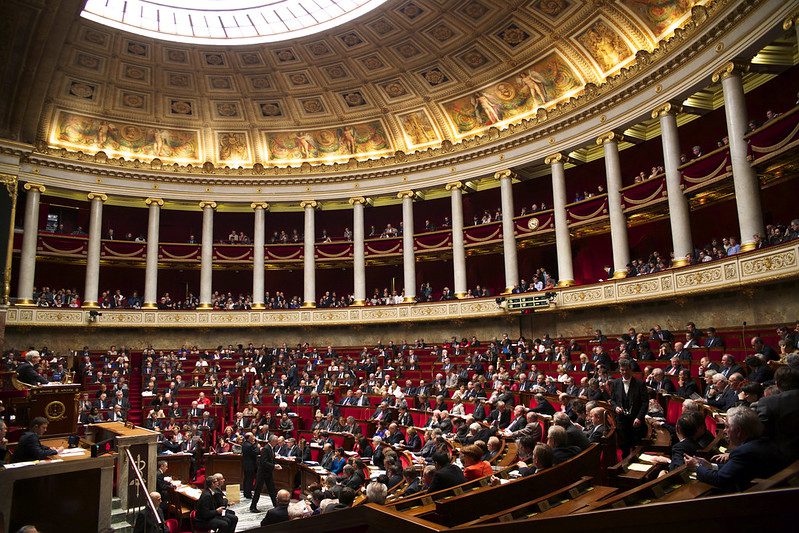
After heated debates, the first part of the 2023 budget was adopted without a vote by the French government, using Article 49-3 of the Constitution, which allows parliamentary votes to be dispensed with. Prime Minister Élisabeth Borne has thus carried out a threat that had been looming for several weeks. This forced passage may only be the first of a long series of such adoptions.
Late on Wednesday, October 19th, after seven days of uninterrupted discussions, the Prime Minister chose, according to the formula provided by the Constitution, “to engage the responsibility of her government for the first part of the finance bill” by resorting to Article 49-3, a provision not very popular in France which enshrines the omnipotence of the executive body in the face of possible resistance from Parliament. In the absence of an absolute majority in the National Assembly, the head of government had no other choice but to pass the budget as she wished.
Faced with the power of the opposition’s attacks, the prime minister tried to defend herself by explaining that the initial text had been significantly altered. But the overwhelming majority of the validated amendments were proposed by the presidential party. MPs from the left-wing NUPES coalition walked out of the chamber in protest against what they called a “democratic power grab.”
The NUPES announced the tabling of a motion of censure against the Borne government—the only way to constitutionally counteract the use of Article 49-3: if the motion of censure gathers 289 votes, the motion is accepted, the government is overthrown, and the text protected by Article 49-3 is rejected. In theory, a motion of censure would have a chance to succeed if all the oppositions managed to unite, namely the left-wing coalition NUPES, but also the Rassemblement National and the group of Les Républicains MPs. This scenario, however, will not happen: the Rassemblement National has announced that it will not vote for the NUPES motion but will table its own motion. As the French proverb says, “it is the answer of the shepherd to the shepherdess” (la réponse du berger à la bergère): the NUPES had also announced that it would not vote for a motion of censure tabled by the Rassemblement National (RN). The leader of Les Républicains deputies refuses to enter this game in order not to, he says, “add chaos to chaos.”
The Rassemblement National explains that it cannot join the NUPES in this context. “We do not censure the government for the same reasons,” explains Marine Le Pen. It is not possible to vote “a motion of censure from La France Insoumisewhich explains that we need more money for immigration, less money for the police.” “It is a radically opposite project” to that of the RN, she added. On the other hand, the RN does not exclude the possibility of voting later on a joint motion of censure with the Left on the issue of pension reform. The leader of the Rassemblement National deputies took the opportunity to mock Les Républicains, whom she accused of being the “passive crutch” of the government party.
The procedure of the motion of censure has succeeded only once in the history of the Fifth Republic. The government of the Gaullist Georges Pompidou was overthrown in 1962 over the issue of the introduction of presidential elections by direct universal suffrage.
This is not the first time that a government has found itself in a position to force the budget through: the socialist governments of 1988 to 1993, also without an absolute majority, had to do so on several occasions. But this time the political cost for the Borne government could be higher. The deputy of La France Insoumise Éric Coquerel analyses the use of Article 49-3 as a symptom of a “regime in crisis.” Having been used once, the legal mechanism may become the default option for the vote of the social security budget, which comes next in the parliamentary agenda, and for each future stage of the shuttle between the National Assembly and the Senate: a measure sure to seriously weigh down the climate of the debate and reduce the popularity of the government.
